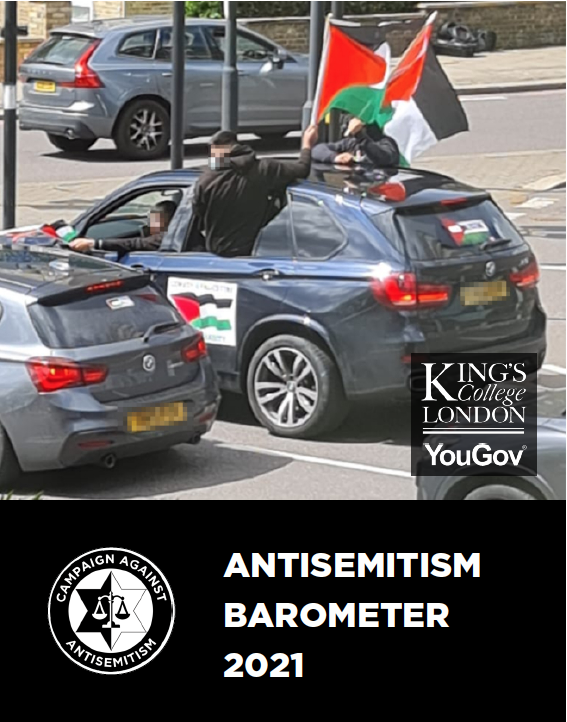Jews in Britain today are deeply fearful of anti-Semitism. That is the unequivocal message of the Antisemitism Barometer 2021 commissioned and published by the Campaign Against Antisemitism (CAA).
Even allowing for the margins of error that such polls are normally prone to the figures are striking. Fewer than six in 10 British Jews say Jews have a long-term future in Britain while 46% avoid displaying outward signs of their Jewish identity in public.
Despite concerted attempts by the Labour party to improve its image in this respect over eight in 10 still see it as too tolerant of anti-Semitism. Some 52% took a similar view of the Green party.
A parallel survey of the British public’s attitude towards Jews shows high levels of anti-Semitism but there are reasons to question the methodology on this front. The survey asked respondents six questions on what it called “Judeophobic antisemitism” and six questions on “anti-Zionist antisemitism”. It used responses to these 12 questions to compose a Generalised Antisemitism Scale. The survey found that 57% of adults affirmed a single one of the statements but four in 10 affirmed at least one of these 12 statements.
However, at least in some respects it looks like the survey set the bar too low in terms of what constitutes anti-Semitism. For example, it found that 24% agreed with the statement that “Israel treats the Palestinians like the Nazis treated the Jews”. For me that certainly shows gross historical illiteracy but, when expressed by the person on the street, it is not necessarily anti-Semitic.
They key problem is that the term Holocaust has been so promiscuously used that, tragically, it has almost lost its specific meaning. For example, the term has been attached to many conflicts in the world including Cambodia, the former Yugoslavia, Rwanda and Sudan. All of them of course involved horrendous loss of life on a vast scale but lumping them together with the Holocaust obscures its specific characteristics.
Accusing political opponents of being akin to Hitler or dubbing them Nazis is even more common. This is more akin to childish name-calling than serious political analysis. It also has the unintended side-effect of confusing the public in relation to the meaning of the Holocaust. Indeed, one of the key challenges facing anyone who wants to confront anti-Semitism is to reinstate a sense of the specific characteristics of the Holocaust.
In terms of what the survey defines as Judeophobic anti-Semitism the strongest support was for the statement “Jewish people chase money more than other people do.” Some 8% of the public agreed with the statement and 3% strongly agreed. However, that was a substantial decrease on the 2015 figures when 20% of the public agreed and 5% strongly agreed.
The British public did seem to be more amenable to what the survey defined as anti-Zionist anti-Semitism. For instance, only 50% of the public agreed with the statement: “Israel is right to defend itself against those who want to destroy it”. The remainder consisted of 43% who neither agreed nor disagreed, 5% who disagreed and 2% who strongly disagreed.
The survey follows several other reports on anti-Semitism published last year by the Community Security Trust.
Appendix: Note on methodology
When considering the validity of any opinion polls several factors should be considered. These include who conducted the survey ( generally not the organisation that commissioned it), exactly when it was conducted (since opinions can change in relation to specific events), how the survey was constructed and whether the samples were representative. The two related CAA surveys scored well by those metrics.
The survey of British adults’ attitudes towards Jews was designed and analysed by Daniel Allington of King’s College London based on a survey conducted by YouGov, a public opinion polling company. Fieldwork was conducted from 19th-20th December with 1,790 responses obtained.
Allington also designed the survey of attitudes of British Jews but it was based on work with partners in the Jewish community to create a nationally representative sample of British Jews. The fieldwork was conducted between 17th August and 1st October. Some 1,678 responses were obtained.
More details are available in the report itself.

